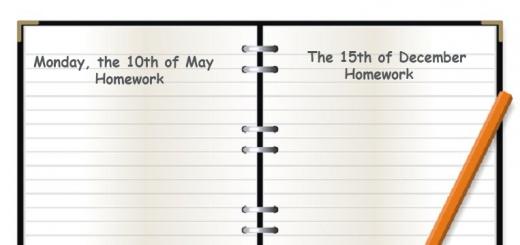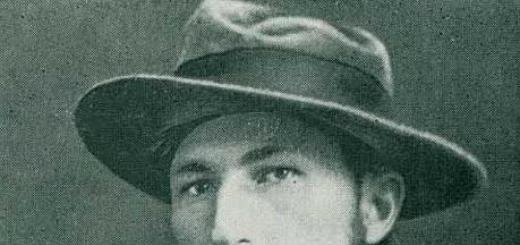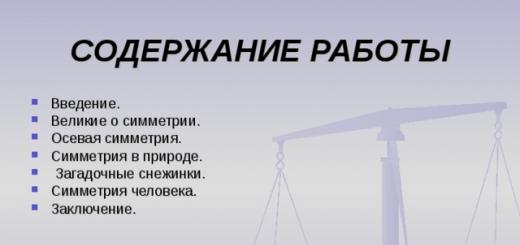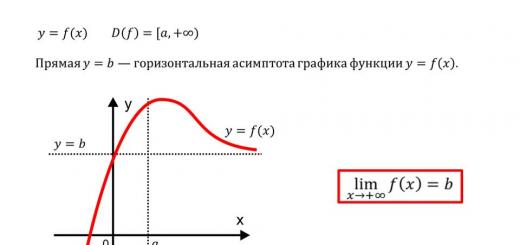There are many forms of apology in English. Below are the most common options.
This expression is used when you need to politely attract a person's attention. If you are going to ask a passerby or a busy person about something, you need to start the sentence with this phrase.
Excuse me, could you tell me where the restaurant is?
I'm sorry, could you tell me where the restaurant is?
Sorry and I’m sorry
These forms of apology apply if you have already committed some kind of wrongdoing. Thus, you want to convey to your interlocutor that you regret what happened.
I’m sorry, but I haven’t done my part of work in time.
I'm sorry, but I didn't do my part on time.
To increase the degree, you can use the following forms of apology:
I'm very sorry, I'm really sorry, I'm so sorry.
At the same time, phrases are used in the same situations, only the emotional coloring intensifies.
Sorry(or pardon ) is also used if you did not hear the interlocutor and want to ask again.
Forgive me
Translated as “forgive me.” You should apologize in this form when you have made a mistake to someone you know who is deeply offended. For example, betrayed, set up.
Please forgive me! I understood my mistake.
Please forgive me! I realized my mistake.
Apologize
This is a formal form of apology. It is usually used in writing in business correspondence, as well as in case of being late for work.
We apologize for this omission.
We apologize for this oversight.
How to respond to an apology
The response to an apology depends on what exactly the other person wants to convey, but the following phrases are most often used as standard politeness.
It's all right– It's OK.
Forget it- Forget about it.
Never mind- It's OK.
That's OK, It's OK- Everything is fine.
Don't worry– don't worry, everything is fine.
I’m sorry for my behavior.
I apologize for my behavior.
Do not worry.
How to say “thank you” correctly
Gratitude in English is expressed using the word "Thanks", or "Thank you", which translates as “thank you.” Depending on the situation, the emotional degree may be intensified.
More formal ways of expressing:
Thank you so much, Thank you very much - Thanks a lot.
That's very kind of you- that's very kind of you. Can be used in a more formal setting.
Conversational options:
Thanks a lot, Many thanks - Thanks a lot.
Thanks a lot! Your help was really important for me.
Thank you very much! Your help was really important to me.
Thank you very much. We appreciate your efforts.
Thanks a lot. We appreciated your efforts.
How to respond to gratitude
There are three main responses to “thank you” in English: It’s OK, Sure and You’re welcome.
It's OK
This is a friendly answer. Translated as “You’re welcome”, “Please”. It should be used if gratitude is expressed for assistance or service provided.
Thanks that you borrowed me money - Thank you for lending me the money.
It's OK - You're welcome.
This answer is relevant if you helped out a friend. At the same time, this is a self-evident event for you. It can be translated as “no problem, “you’re welcome.”
Thank you so much that you helped me to repair the car. – Thank you very much for helping me fix the car.
Sure - You're welcome.
You're welcome
This is the most neutral and polite answer. Most often it is used in relation to strangers or unfamiliar people. For example, when a passerby tells you something.
Excuse me, could you tell me where I can find a museum? — Excuse me, could you tell me where I can find the museum?
You should go this way. - You need to go this way.
Thanks. -Thank you.
You're welcome. - Please.
You shouldn’t do this only with the Russians; you can’t understand the British with your mind either. They live on their island, and their home is a fortress, they are all enslaved and unsociable. And pathological politeness lives in them from birth. However, as they say: When in Rome do as the Romans do(They don’t go to someone else’s monastery with their own rules). Since you have decided to learn English, please learn English politeness. Maybe we just don't have enough of her. I often repeat that beautiful English speech - grammatically correct, lexically rich and pronounced as needed - will endear your interlocutor to you. Correct speech and pronunciation make an impression, so do not underestimate the desire for perfectionism in language. You can get a lot of goodies with it. Believe me, all the pain you go through to speak English well is not in vain. They will bear fruit. But it's not just how you speak that matters, it's also what you say. Therefore, you need to know what conversational forms to use so that people clearly feel your polite attitude towards them.
1. Could/would
One of the basic rules of politeness is to replace can in requests with could or would and add please.
For example:
Can you give me your book? -> Could you give me your book please?
(Can you give me your book? -> Could you give me your book?)
Can you call me later? -> Would you call me please?
(Can you call later? -> Could you call later?)
Come tomorrow. -> Would you be so kind to come again tomorrow?
(Come tomorrow. -> Could you be so kind as to come again tomorrow?)
2. Shock absorber words
When you need to convey unpleasant information, report a refusal, disagreement, etc., use the so-called “shock absorber words” (softeners):
I'm afraid- Afraid
so sorry- Sorry
to be honest- Honestly
unfortunately- Unfortunately
with all respect- with all due respect
For example:
With all respect I have to decline your offer. (With all due respect I must turn down your suggestion)
I am afraid you don’t have enough experience. (I'm afraid you don't have enough experience)
It's a matter of choice of words. Instead of straightforward certainty, there should be polite uncertainty masking reality. A modal verb is also often added for this purpose might/may.
For example:
(Completing the project will take longer. -> Completion of the project may take longer)
In the best traditions of British understatement, we use the following shock absorber words: a little, a bit, a little bit, slight, slightly, small, one or two before nouns. All in order not to sound rude, too assertive and unrestrained.
For example:
We are having problems with the new product. -> We are having one or two problems with the new product.
(We have problems with the new product. -> We have small problems with the product)
We will run over budget. -> We might run slightly over budget.
(We will go over budget. - We will go slightly over budget)
The marketing campaign is behind schedule. -> The marketing campaign is a little bit behind schedule.
(Marketing campaign is behind plan. -> Marketing campaign is slightly behind plan.)
3. Negative questions
To soften the effect in cases where you want to suggest something, it is better to use negative questions:
We should redesign the company logo! -> Shouldn’t we redesign the company logo?
(We should redo the company logo! -> Shouldn't we redo the company logo?)
We must hire a new advertising agency. -> Couldn’t we hire a new advertising agency?
We must hire a new advertising agency. -> Wouldn’t it be better to hire a new advertising agency?
4. Past Continuous
Another way to make a sentence more diplomatic and less direct is to use the Past Continuous.
I hope we can sign the contract today. -> I was hoping that we could sign the contract today.
(I hope we can sign the contract today. -> I hoped to sign the contract today)
Using the Past Continuous makes your sentence hypothetical. In the Russian translation the difference is not noticeable, but in English the Past Continuous adds politeness to your speech.
I think we need to hire more employees. -> I was thinking we need to hire more employees.
(I think we need to hire more workers. -> I think we need to hire more workers)
I aim to finish this project by the end of the month. -> I was aiming to finish this project by the end of the month.
(I expect to complete the project by the end of the month. -> I expect to complete the project by the end of the month)
5. Passive Voice
You have broken my computer! (You broke my computer!)
This sentence in the active voice is so direct that it borders on rudeness. And if you want to avoid a bloody scene (that is, you don’t want to directly accuse a person), you should use the passive voice. It will help you be more diplomatic:
My computer has been broken! (My computer is broken!)
In this way, you shift attention from the culprit of the action to the object of the action and mitigate the person’s personal responsibility for what was done.
You said you were going to sign the deal today. -> It was understood that you were going to sign the deal today.
(You said that you would sign the deal today. -> It was agreed that you would sign the deal today)
You agreed to lower your fees. -> It was agreed that you were going to lower your fees.
(You agreed to reduce your rates. -> It was agreed that you would reduce your rates)
Let's also take a look at some expressions and structures you can use in certain situations to sound polite.
Gratitude
(Here are your keys. - Thank you)
Thank you for helping with the report.
(Thanks for your help with the report)
Thank you so much for your advice.
(Thank you for your advice)
Request
In addition to using could And would With please, For example:
Would you close the window, please?
(Could you close the window please?)
Could you give me your phone number, please?
(Could you give me your phone number, please?)
You can use expanded constructs with the if clause:
If it is possible, would you be so kind to look through my papers?
(If possible, would you be so kind as to review my documents?)
If you don't mind, would you please stop smoking?
(If you don't mind, could you please stop smoking?)
Please go and fetch Mr. Stone, if you will.
(Please go and bring Mr. Stone if possible)
Request for permission
The standard way to ask permission is to use a modal verb may:
May I go now, please? (Can I go please?)
You can also use the following:
Do you mind if I watch the news?
(Do you mind if I watch the news?)
Would it be a problem if I watched the news?
(Will it be a problem if I watch the news?)
Have you ever placed an order in a foreign restaurant, and then the waiter looked at you with a dissatisfied face? Have you asked someone in English to do you a favor and they refused with a distressed tone in their voice? Well, it's possible that you lack politeness in English.
Full of those little formalities that can really determine whether you succeed in making a good first impression on people or not. All this unspoken etiquette occurs when we ask for any information or even offer something. Using "please" and "thank you" is necessary in most situations.
Polite requests in English
When we make a request to someone, we really want to do it as politely as possible in order to get a positive result. Besides, politeness is never too much. Even in the simplest situations, you should never avoid even banal “please” or “thank you”.
For example, if we need to place an order in a restaurant or cafe, then there are standard polite phrases for this case. Below is the most common way to place an order in English or simply ask for something.
Can I/Could I
Could I order please?
Can I have a cake please?
Can you lend me 30 dollars?
May I(used in more formal situations)
May I attend the meeting next week?
May I join you for lunch?
Asking for permission in English
A good tip for those traveling to a foreign country is to always ask if you are unsure of your politeness or anything else. Sometimes what may be acceptable in your culture may be considered a little rude in another. For example, some people like to listen to music on their phone on public transport. This is not uncommon in Russia, and it is unlikely that anyone will ask others whether they like it or not. But, for example, somewhere in Australia you would have to use your polite communication skills in such a situation.
Do you mind if I listen to my music really loudly?
Would it be a problem if I listened to my music really loudly?
I was wondering if I could listen to my music.
The structures in bold can be used in any situation where you need to ask someone for permission. When asking, also watch the tone of your voice; it should not be harsh or rude. Make it as soft as possible. Sometimes this way of treating others is simply necessary, because they need to be able to let you know that they don’t like something without feeling embarrassed about it. It sounds a little boring, but we do often worry about offending others. So it is in English.
Misunderstanding
When someone speaks to us in English and we don’t understand what we’ve just been told, our first reaction is “Sorry?” (in a soft tone of voice). This is the most common question expressing misunderstanding, and it is considered quite polite.
Let's take a closer look at how to ask your interlocutor again if you didn't hear his words:
Sorry?- Quite a suitable option for polite communication. They will repeat to you what was said before, perhaps even in a simplified form.
Pardon (me)?- A more polite way than “Sorry?”, although the meaning is the same. Sometimes used in more formal situations.
Excuse me?- This is a request to repeat what was said. Depending on the tone of your voice, this phrase can express shock at what the person said, or that you didn't like what they said.
Rejecting the invitation. Disagreement
Sometimes you have to tell people no. Of course, not all of us know how to say this correctly, so we are forced to again call upon polite forms of refusal to help.
For example, every girl has probably encountered the fact that she had to refuse a guy’s invitation, but did not want to offend him. Or perhaps you disagreed with someone but didn't want to look like you were trying to get desperately defensive. In English we use what we call "softeners" to avoid sounding so direct.
You can decline an invitation in English in the following simple ways:
I'm afraid I can't...
I'm afraid I can't...
I'd love to but...
I would like to, but...
That sounds great but…
Sounds great, but...
And disagreement can be expressed, for example, like this:
I see what you’re saying, but I think...
I understand what you are saying, but I think...
You could be right, but don’t forget that...
You must be right, but don't forget that...
Yes that’s true, but I’m not sure that...
Yes, it's true, but I'm not sure that...
Examples of such dialogues:
- Hey, do you want to come to restaurant with us? Hey, do you want to go to the restaurant with us?
- I’d love to, but Kate is making spaghetti tonight. I'd love to, but Kate is making spaghetti tonight.
- Hey sexy! I would love to buy you a drink. Hey baby! I want to buy you a drink.
- Oh, I’m afraid I can’t, I have boyfriend. Oh, I'm afraid I can't accept him, I have a boyfriend.
- Mario is the best game ever! Mario is the best game!
- I see what you’re saying, but I think Mortal Kombat is the best game ever. I understand what you're saying, but I think Mortal Kombat is the best game.
Whether to speak politely or not is everyone's own choice. Sometimes, of course, we need to be strict, demanding and even rude at times. However, I still advise you to use the following polite phrases when traveling to foreign countries, as you never know what is considered rude and what is polite in their culture.
It is extremely important to use polite words in English, otherwise you may be perceived as rude and rude. In this video we will tell you about the most common politeness phrases and in what situations to use them. To get started, watch this video of ours
Order in a cafe in English
When ordering something in a cafe or restaurant, it is very important to be polite. To do this, you can use phrases such as: “can I”, “could I” or “may I”. For example, when ordering water, say:
Could I please get a water; “may I have a water, please.”
That is, try to frame your order as a polite request.
Phrases like “give me water” or “I want a glass of water” sound rude in English.
How to ask permission in English
Imagine a situation where your phone is dead and you need to make an urgent call. You'll probably want to borrow a phone from someone you know to make a call. Or perhaps you need to interrupt someone's conversation.
In each of these cases, it is important to use expressions such as “do you mind if...”, “would it be a problem...”, “I was wondering if I could...”
For example, if you want to ask someone for their phone number, you could say:
“Do you mind if I borrow your phone”, “would it be a problem if I borrow your phone”, “I was wondering if I could borrow your phone”.
These are actually very polite ways to ask for permission. You should not say “let me borrow your phone” or “I want to borrow your phone”, “give me your phone”. Such phrases sound like an order, not a request. Perhaps you can say this to a close friend, but when it comes to strangers, you need to be as polite as possible.
If you didn't hear or understand something
This point is very important because you are just learning English and from time to time, regardless of your level, you may have problems understanding and listening to English speech. In such cases, you will have to ask the person to repeat what they said. This must be done as politely as possible so as not to offend the person. You can say:
“I’m sorry”, “excuse me” or “pardon”. You can also say “could you please repeat that?”
This is a very polite way to clarify something.
Avoid using phrases like "what", "huh" - these sound very rude in English. Saying them often can make a person feel uncomfortable and even offend them.
Declining invitation
Quite often, people will invite you to various events, and maybe you do not have time to agree to the invitation, and you need to refuse the invitation as gracefully as possible. The best way to do this is to explain that you would love to accept their offer, but for some reason you can't. One way to do this is to say "I'm afraid."
You can say:
“I’m afraid I can’t I have to work on Friday” (I’m afraid I work on Friday).
You could also say something like:
“I'd love to go to the party with you, but I have to see my grandfather on that day, so I can't” (I would love to come to the party, but on this day I need to see my grandfather, so I can not).
The third way is to say " unfortunately" (Unfortunately).
For example:
"Unfortunately I have plans for that day, so I can't join you, but it would be great next time" (unfortunately, I already have plans, so I won't be able to join you, but it would be great next time ).
That is, you need to show that you really would like to accept the invitation, but cannot, and there is a good reason for this.
Be sure to use polite words in English, because they are an indicator of good manners and good manners. Remember that in English, even a simple refusal without words showing regret can look very rude.
The most important thing in learning any language is to master spoken language. This is necessary in order to be able to start any conversation in a foreign language, and also not to get confused in various conversational situations. And here English polite phrases and words will help us. After all, our treatment of the interlocutor must be courteous in order to make a favorable impression on him.
Expressing politeness and respect in English speechExpressing politeness, courtesy and respect in English is very important. Certain phrases will help us start a conversation, say hello, express refusal or agreement, regret or joy, ask for help, apologize, say goodbye, wish good luck in English.
Expressions of politeness in English, as in any other language, are usually used when meeting and leaving, at the beginning of a telephone conversation and at its end. It is necessary to be careful and differentiate between communication with a peer and with a person older than you, with a friend and with a stranger, since you cannot say to an elderly person “ Hello! Hi, Hello!", But " Hello! How do you do, Good day!" Also, when saying goodbye to an elderly person, we do not say “ Bye, See you soon. Bye", But " Goodbye. Good bye».
So, here are the basic expressions of polite greeting and farewell in English. These expressions will help you say hello, start a conversation, and at the end of it say goodbye to your interlocutor:
- Good morning! - Good morning!
- Good day/evening! — Good afternoon/evening!
- Nice to meet you! - Glad to meet you
- Hello! Hi! - Hello!
- How are you today? - How are you today? How are you doing?
- Glad to see you! - Glad to see you!
- Welcome! - Welcome!
- Good bye! - Goodbye!
- Good night! - Good night!
- Have a nice day! - Have a nice day!
- See you! - See you!
- See you soon! - See you soon!
- See you later! - See you later!
- Bye-bye! - Bye!
Expressions that will help when meeting people
These politeness phrases in English are intended for introduction, with their help you can introduce yourself, say your name, introduce your friend, colleague, etc.
- What is your name? - What is your name? My name is... - My name is...
- Nice to meet you! - Glad to see you!
- Nice to meet you, too. - I'm glad to see you too
- Let me introduce my friend, my colleague... - Let me introduce my friend, colleague...
- This is my friend... - This is my friend...
How to politely thank and respond to gratitude?
Gratitude is also an expression of respect in any language in the world. As you understand, these polite expressions convey gratitude, as well as what you should respond if you are thanked:
- Thank you! - Thank you. Thank you
- Thank you very much! - Thank you very much
- Thank you ever so much! - Thanks a lot
- Thanks a lot! - Thank you very much
- Be welcome. - Please. Please contact again
- You are welcome. - Please
- It's my pleasure. - With pleasure
- Not at all. - My pleasure.
Here you should pay attention to the word “ Please" This word in English is not a response to gratitude, although it is translated as “Please.” It is used when you want to make a request.
For example:
- Please help me! - Please help me!
- Please give me your pencil. - Please give me your pencil.
How to ask for forgiveness in English?
These polite expressions will help you apologize and ask for forgiveness or express regret in a given situation:
- Pardon! - Sorry, sorry
- Sorry! - Sorry
- I am sorry! - I'm really sorry.
But one should not confuse the expression “ Sorry!" And " Excuse me!" The phrase “Excuse me!” used when you want to ask about something, clarify something, etc.
For example:
- Sorry, I can’t come to you. - Excuse me, I can come to you.
- Excuse me, where is the post office. - Excuse me, where is the post office?
If you need to ask or ask for help
- Can I ask you? -Can I ask you?
- Could you help me? - Could you please help me?
- May I ask you for a help? -Can I ask you for help?
- Can I help you? - Can I help you?
- Could you do me a favor? -Would you do me a favor?
- Please! - Please!
- What can I do for you? - How can I help you?
What's happened?!
Expressions of politeness that help us ask questions about what happened. They reflect our emotions of surprise, bewilderment, surprise about the situation that happened:
- What's the matter? - What's happened?
- What's up/going on? - What's the matter / What's going on?
- What’s the trouble/happening? - What's the problem/What's going on?
Polite phrases of reassurance and encouragement
Such phrases and speech structures will be useful to you to express politeness if you want to encourage, reassure, reassure someone, etc.
- Don't take it to heart. - Take it easy
- Take it easy - Don’t worry, take it easy
- Never mind - Don't worry
- Forget it - Forget it, don’t pay attention.
Phrases of good wishes
Such expressions of politeness serve to wish you a good day, a pleasant holiday, a good weekend, etc. You can also give a compliment to your interlocutor on this or that occasion:
- Have a nice day! - Have a good day!
- Have a good vacation! - Have a nice holiday (vacation) to you!
- Have a nice holiday! - Happy holiday!
- Good luck! - Good luck!
- I wish you a good week! - I wish you a good week!
- You are very beautiful today! -You are very beautiful today!
- You look great! - You look beautiful!
- This dress fits you very well! - This dress suits you very well!
There are many more similar polite phrases in the English language. We looked at the most basic and most universal designs that are used everywhere. It is very important to pronounce these phrases kindly, with a smile, and in a friendly voice. And then the interlocutor will definitely respond to your request or question. We wish you good luck!










